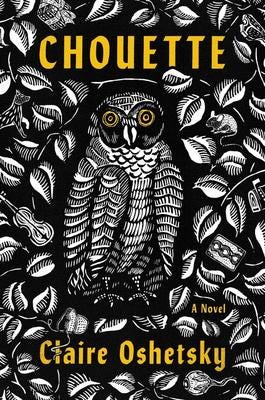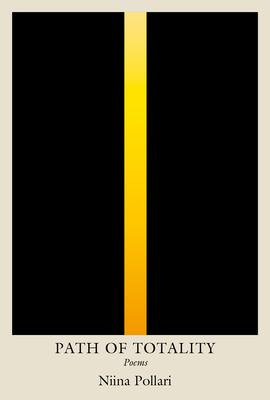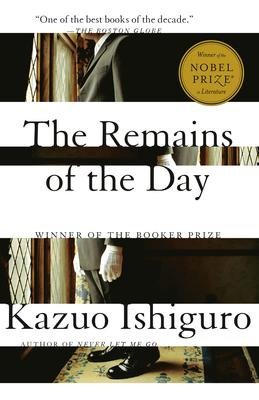During the American Civil War, a phenomenon known as acoustic shadowing occurred across battlefields throughout the South, from Virginia to Kentucky to Mississippi. An acoustic shadow prevents sound waves from traveling and can be cast by anything from buildings to towering trees to particularly fierce wind currents. It was the latter that muted the sounds of skirmishing at the Battle of Iuka, tricking Gen. Ulysses S. Grant into thinking the fighting had not yet begun. Three years later, at the Battle of Five Forks, an acoustic shadow allowed the Union Army to descend on the surprised Major Gen. George Pickett and his Confederate forces.
There’s something particularly hair-raising about the idea that an entire battle could be waged — a battle you’re fully expecting to happen — just a short distance from where you sit, in a grove of moss-footed trees, and you just wouldn’t hear it. It’s disconcerting to think that silence, like light, could be a mirage, that our senses could be so thoroughly tricked in such unexpected ways. But shadows have a way of playing with us, of hinting at duplicate realities and the ephemerality of even the most reliable of things; even the sun can disappear behind a shadow.
There are all sorts of different shadows in the books below; some are literal, none are acoustic. But, they all serve as a reminder of sorts, that sometimes, when you feel most firmly tethered to reality, you’re actually closer than ever to having everything you know disappear.
Present Tense Machine by Gunnhild Øyehaug, translated by Kari Dickson
The brain fog of early parenthood is relatively well-known, but the pervasive forgetfulness starts long before giving birth. Words fall heavily from brain to tongue, shapeshifting into meaninglessness on their way out of the mouth. Nothing sounds right, but it’s hard to determine why not. Then, the mental murkiness that follows having a baby — though spiked by occasional moments of razor-sharp clarity — is all-encompassing, and familiar to any and every parent. Maybe it’s just the bone-deep fatigue that comes from sleeping only for short stretches of time; maybe it’s the confusion that accompanies the restructuring of an entire world. Whatever the case, it’s easy to forget things: house keys, passwords, the word “pepperoni.” It’s a period of “fuzziness… an insistent empty space, like a shadow without a shadow.” At least, that’s how it feels for Anna, who, in the midst of that particular fuzziness, misreads a word while her daughter Laura plays amid the lilacs in the garden of their home. The word Anna misreads is “trådgård,” Swedish for “garden.” Once she reads it as the non-word “tårdgård,” chaos ensues — Laura disappears into a parallel universe. And Anna can’t quite remember that she ever had a child at all. For a story that deals with such a cosmically disorienting occurrence — mother and child pulled from one another, with nothing tying them together other than a mutual pull toward Erik Satie’s “Vexations” — there is a tender precision in Øyehaug’s rendering of the way we move through our lives, even when they’ve been disrupted, even as we know more disruption certainly lies ahead. Whenever we create one life, other lives disappear, but their shadows persist somewhere, even if just beyond our consciousness. It’s no wonder new parents always feel like they’re forgetting something, even if they can’t quite put a name to it, even if they’re not sure it ever existed in the first place.
Chouette by Claire Oshetsky
It seems that shadows would lose their potency at night, even ceasing to exist. But that’s exactly when they have their strongest hold; it’s exactly when those creatures who feel most at home in their depths can venture out, spread their wings. Nights are not a gentle time for Tiny and her owl-baby-daughter, Chouette, whose innate need to flex her talons and claw at everything around her leaves no one unscathed. Then again, days aren’t any easier. And yet Tiny, despite being sure she’s a terrible mother, loves Chouette as passionately as Chouette loves, well, blood, and so she protects this fierce, fragile creature from doctors who would attempt to “fix” her, from a father who threatens her existence, from anyone who would not allow Chouette to be herself. Oshetsky’s writing thrums with the cadence of dueling heartbeats, the language a visceral soundtrack evocative of the noises that emanate from the deepest parts of ourselves. Chouette refuses to engage with that popular parenting dichotomy — nature or nurture — and instead is thrillingly subversive in its ability to change the way we see motherhood, authenticity, and freedom. Also? It’s a book about a mother named Tiny and her precious owl-baby — it’s very, very funny.
Path of Totality by Niina Pollari
The path of totality is the swath of Earth where it is possible to see the entirety of a solar eclipse. It is also called the shadow zone, a place defined by an abundance of absence — no direct light, only a pervasive dusk. It’s a sublime experience, witnessing this type of astrological phenomenon. You’re not alone in it, but what you take from it is only yours. The titular poem in Niina Pollari’s devastating new book touches on her experience during a recent eclipse, how her time in its penumbra led to the realization of her daughter; the astral event was “something that set you into motion… though you wouldn’t form in me for months.” This is a book about that most profound type of grief, the loss of a child, the loss of that daughter at the time of her birth; but whereas mourning can often cause people to withdraw, to turn inward, Pollari’s writing is expansive, all-encompassing. These poems feel like a generous act; in sharing her tragedy — not just the sorrow, but the fierce and enduring love, the moments of pure bliss — Pollari is offering a legacy, a blindingly beautiful corona surrounding all that darkness. This book, then, feels like a special, cosmic gift, even though Pollari writes, “Some will say this is not a poem for them. But I say it’s a poem for anyone who ever expected anything.” And I say, it’s a poem for anyone. For everyone.
The Swimmers by Julie Otsuka
I’ve always thought I’d be a good lap-swimmer, in that lane etiquette seems like it would be second nature to me, thanks to a life lived navigating New York City’s sidewalks and subway escalators, etc. Unfortunately, this is mere conjecture, because I’ve never really looked into joining a pool, and anyway, the only stroke I really swim is sidestroke, and I don’t know if that would really cut it among crowds of real swimmers. Reading the first half of Julie Otsuka’s latest has satisfied at least some of that urge for me; she captures exactly the what it is that I find so (theoretically) appealing about pool-swimming: the methodical magic of it all; the community of people committed to going back and forth, always ending up in the same place even though they’re exerting themselves fully, while going at a rate far slower than most people walk. All is not perfectly serene in this underground pool, though; a crack has formed “just south of the drain in the deep end,” a slim shadow threatening the structural integrity of the entire body of heavily chlorinated water. As the pool drama plays out (and the pool is eventually emptied of its water; its center cannot hold), The Swimmers homes in on one of the pool’s enthusiasts, a late-middle-aged woman named Alice who is descending into dementia, slipping through a shadowy crack of her own. This portrait of Alice — a mother, a wife, a daughter — is tender and illuminating, told from the viewpoint of Alice’s daughter, a novelist whose ability to keenly describe what is happening to her mother, and to interrogate what this loss means, is striking in its intimacy. The Swimmers is a searing reminder of what gets lost when we begin to forget our pasts, what histories vanish into darkness — especially if we never shared them when we had the chance.
The Remains of the Day by Kazuo Ishiguro
Some people might say that the scariest role Anthony Hopkins has ever played is Hannibal Lecter in The Silence of the Lambs, but I find it hard to believe it’s not Stevens in The Remains of the Day. After all, Hannibal Lecter is only responsible for cannibalizing a dozen or so people, whereas Stevens — the platonic ideal of a British butler — is complicit in the Empire’s cannibalization of entire regions of the world, to say nothing of its own people. Chilling! Admittedly, I haven’t seen the movie (I always, mistakenly, thought it was just a story of unrequited love between servants with stiff upper lips, and ah, no, thank you, not my thing!), but I am so so glad that I picked up this novel recently, because it’s not really about unrequited love at all! Well, at least not unrequited romantic love. Rather, it’s about the crippling self-deception also known as love of a country that will never love you back (especially if you’re not of the right class), as well as the misguided notion that blind allegiance (or even any allegiance?) to an employer is a virtue. It’s a startling, often hilarious evisceration of a culture that prioritized manners over morality. Which, you know, good riddance. But, great book.
But also
Speaking of shadows and duality and parenting and grief and the way a nation’s past can haunt its people for generations, if you can’t read these books right away, you can still get a quick fix of all this good stuff by checking out Pedro Almodóvar’s latest, Parallel Mothers. It’s twisting and twisted and full of melodramatic mayhem, and also, real teeth! Milena Smit’s teeth should win Best Supporting Actor this year, and every year.
“We are hurt in relationships and we are healed in them too.” Let your heart rise up out of your throat for a little while thanks to Akhil Sharma’s beautiful essay, “A Passage to Parenthood.” (The New Yorker)
“I’d always thought of myself as a feminist, because I had never believed that men were better than women. Yet I had also thought it was part of the rich, ineluctable fabric of the human condition for women to ruin their lives over unsatisfactory men.” A masterful profile by Elif Batuman of director Céline Sciamma, whose Portrait of a Lady on Fire was the last film I saw in a theater before, you know, all this, and it has never really left my mind. (The New Yorker)









“Whenever we create one life, other lives disappear.” Damn, this feeling of unrealized realities you describe is so real. I want to read ALL of these, but also, Remains of the Day is one of my favorite books and Ishiguro is probs my favorite author!!!!!!